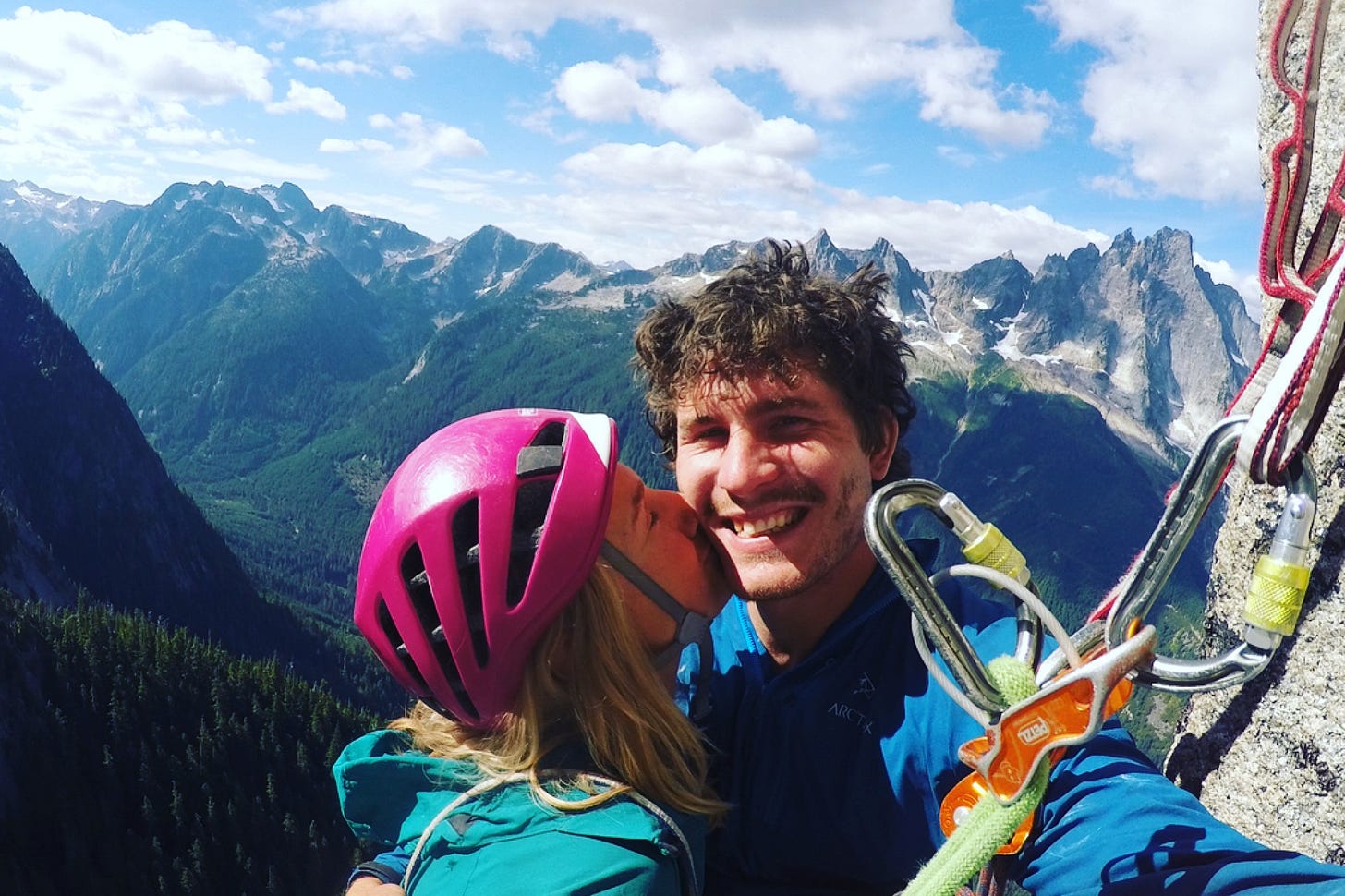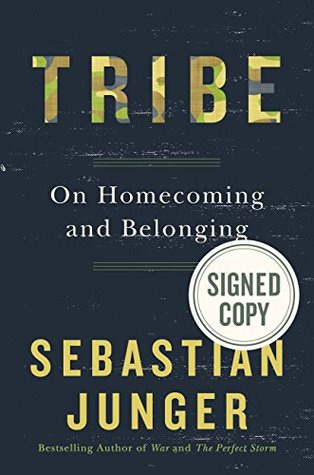The Introverted Thinker Newsletter #021
A discussion about letting people go, the best documentary I've ever watched, a book about war, and a special bonus.
Hello everyone,
Wherever you are, whether you are working or resting, I hope all is well!
I’ve been increasing my frequency of publishing on Medium this month and hope to go even further next month, so there will be an abundance of content coming your way in the weekly newsletter.
I’ve also made an effort to focus on the consumption of content, like books, podcasts, speeches, lectures, etc. That way I have so much more to write about and more valuable ideas to share in this community.
For that reason, I think I’ve come across some true gems this week to share with you.
Anyway, firstly, I share with you a section of a piece I wrote about letting people go.
The Abysmal Art of Letting People Go
Indispensable lessons on infinity and impermanence.
All-night parties fueled by MDMA and cocaine, bullying and scamming people for money, a toxic judgemental closed mindset, the list goes on…
These were the sorts of things my old group of friends were doing. But the story goes further back than that. It starts as young as age 5 when I first met some of these lads.
A lot of them were like brothers to me, we grew up together. And the bond only fortified after we had finished high school. These were my best friends without a doubt.
But as we grew into our teens, a lot changed. It took a darker turn where the things aforementioned were going on and sometimes even worse things I’m probably not allowed to write on the internet…
And well, you guessed it. I had no choice but to let these people go. It was dark and lonely not having any friends for a while, but I was far happier.
And since this event, I’ve had to let countless other people go such as exes and others. But each time I do it, it strengthens me and makes me happier. I’m still perfecting the art, but I definitely think it's something you may want to hear about…
How much do you value self-care?
I thought I knew what self-care was. Taking a spa day, staying in to meditate and read, ordering a nice takeaway to treat yourself. But there's so much more to it.
Self-care pertains to not only your physical health, but I’d argue even more so towards your mental and emotional health. To clarify further, here's a definition.
“Self-care is any action or actions we take to improve or maintain our own health and well-being”
I value my ability to function mentally very high. And when you have negative hindrances in your life, such as the destructive weight of toxic people around you, it can be hard to propel yourself forward in a positive manner.
To maintain a high degree of mental self-care is to painfully but indefinitely purge away the poisonous elements.
But here's the underlying root problem of all this. Most of us fail to realize that we need to cut people out of our lives due to our lack of self-awareness when it comes to the concept of Self-care.
To maintain a high degree of mental self-care is to painfully but indefinitely purge away the poisonous elements.
Treating cutting people off as self-care is more so a selfless act than a selfish one. A destructive relationship with a family member, friend, or partner is a two-way street.
Your personalities combined may be what is creating a cataclysmic explosion of negativity. So if you take the self-awareness of this and cut someone off, you are doing them a favor.
And in my opinion, this builds good karma. Whatever your stance on karma is, I wholeheartedly believe in it.
Applying Minimalism to Emotional Clutter
I'm sure you are familiar with minimalism. As Joshua and Ryan say over on theminimalists.com, minimalism is about freedom.
“Minimalism is a tool that can assist you in finding freedom. Freedom from fear. Freedom from worry. Freedom from overwhelm. Freedom from guilt. Freedom from depression. Freedom from the trappings of the consumer culture we’ve built our lives around. Real freedom.”
Freeing up space in your material surroundings leaves your brain clearer. Research shows that mental clarity was directly correlated with a clear working space, allowing for more sharp and intense thinking.
Well, the same goes for your emotions. The more you hold on to, the more suffering you will endure. This goes back to the principal teaching of Buddhism.
This is even more relevant when we look at the relationships we have in our lives. A lot of our relationships are like clutter, they add nothing to our lives and just take space……
This article was originally published on Medium. A member’s platform where you can read more of my work and thousands of other writers. By following this link you can sign up for a membership, it directly supports me, I’d be very grateful.
The Best Documentary I Will Ever Watch:
The Alpinist
The Alpinist, where do I even start… This documentary follows 25-year-old Canadian climber Marc André Leclerc from Quebec. He’s not just any climber. He is a solo climber. Meaning he climbs insane mountain peaks by himself, with no rope attachments apart from his picks.
These are feats of greatness, quite literally the things that make this man such a legend to be remembered forever. He scaled mountains all across the Americas, hanging on the side of glaciers. Torre Egger in Patagonia was his most commendable achievement.
He embarks on journeys of the Gods. He carries no forms of communication. He rocks up to a mountain, having never seen or been there, and just climbs. there’s no pre-calculated route or anything.
Anyway, besides the insane free climbing, what makes this documentary so brilliant is Marc André himself. He’s a shy simple man, living in a tent in the forest with his girlfriend. He desires no fame at all, in fact, no one outside the climbing scene really knew who he is, and he wanted to keep it that way.
He was making history in the sport of Alpinism, achieving things no one had ever done, whilst only getting three comments on his blog posts when he posted about them…
So it wasn’t until this documentary crew found him that they felt compelled to share his story.
But back to Marc André. He is a very simple guy. All he wants to do is climb, alone. In fact, he disappears multiple times from the documentary crew because he doesn't want to be filmed, he wants to remain under the radar and be alone in the mountains.
Despite his simplicity, this man is so special. When he talks, he looks like this goofy little stoner kid from Canada but drops such immense, beautiful, poetic words of wisdom.
“…being by yourself immersed in your environment, tuning into the rustle of the leaves, the sound of the wind across the ridge, the aura that the mountain has…”
“The mountains are alive all around you but you are kind of at their mercy.”
“The actual achievement doesn’t really change your life, but what you're left with is the journey that got you to that point. And if I have this big journey, you’re left with so much more of a story, more of a memory, or an experience, and that’s what I find is most important.”
He is the definition of a free-spirited individual. He showed me what freedom was in its purest sense. It was just being at peace doing what you love. He had such a deep passion for the mountains.
I also have a deep love for the mountains, having experienced this freedom Marc felt in a much smaller scale, but it just fascinated me…
This man has talent that only comes around once every couple of millennia, yet he wanted to stay humble and completely unknown to the human eye. A truly simple man doing what he loved, and it was so inspiring.
The documentary is so amazingly filmed, and has an ending that I do not want to spoil, but made the whole thing just that much more impactful.
I will forever treasure this documentary and the impact Marc André Leclerc had on me.
A Book I Read Last Week
Tribe: On Homecoming And Belonging by Sebastian Junger
A book about war, belonging, and the state of modern society. Junger is a war journalist who has ventured into many war zones to investigate what life is like on the other side of the extreme.
And this book explores the question of what happens after people return from a war zone to the regular comforts of life? And the answer is extremely interesting, enough to write a whole book about.
Perhaps of equal importance, he comes to this semi conclusion about why war is so important and why soldiers love it and miss it. It gives insight into one of the main missing aspects of our modern society.
That missing aspect is not belonging to any tribe. In this aspect, this book is as much a work of anthropology as it is of war journalism. He evaluates the relations of people during wars, the bonds that are formed and much more.
As humans, we are wired to belong to tribes, and this leads Junger to explore the epidemic of suicide and depression that is going on.
Coincidentally enough, Junger writes about the Bosnian war in 1992-1995. This is very personal to me because my father escaped from this war, he is Bosnian. And that’s the whole reason I live in the UK, because my father was a refugee from the most brutal genocide and war in Europe since the holocaust and WW2.
His people, the Bosniaks (Muslim bosnians) were massacred with no mercy by Serbian forces. And Junger was there in this war, reporting in the capital city of Sarajevo which was under siege by Serb snipers on the surrounding mountains for over 1000 days.
Heres a quote from that part where a survivor of the Bosnian war, Nidžara Ahmetašević talks about it, it perfectly summarises what this book explores:
“I missed being that close to people”, she told me. “In Bosnia - as it is now - we don’t trust each other anymore; we became really bad people. We didn’t learn the lesson of the war, which is how important it is to share everything you have with human beings close to you. The best way to explain it is that war makes you an animal. We were animals. It’s insane - but that’s the basic human instinct, to help another human being who is sitting or standing or lying close to you”
I asked Ahmetašević if people had ultimately been happer during the war.
“We were the happiest,” Ahmetašević said. Then added: “And we laughed more.”
Does this not reveal so much about how society is set up now, that people living through war miss it and prefer it to normal times?
This book was hugely important to me because of the exploration of the Bosnian war, being half Bosnian myself it really stuck with me. And knowing how brutal this war was, hearing personal stories constantly growing up, and still to this day, I’ve always had this baseline fascination of war…
A Bonus Speech I’m Reluctant To Share With You…
The Strangest Secret by Earl Nightingale
Out of every bit of content I consumed last week, wether it be podcasts, movies, TV shows, Youtube videos etc etc, this was the thing that had the most impactful effect on my day to day life.
I say I’m reluctant to share it because of the impact it can have on your success. I feel like I’d be at an unfair advantage if only I and a handful of people know about it. But then again… its got 2 million views so its not a secret anymore haha.
Earl Nightingale was a 1950’s American radio host and author. He was one of the first people in the space of character development and self improvement.
The premise of this 30 minute recording is simple. SO simple. It’s all about the mind. He talks about how our success is determined by what we stick our mind to and what we think about. We are what we think about. Our thoughts form our reality.
It’s a simple premise, some would argue the building blocks of success, yet most people, especially the youth, have no control over their minds and how to successfully apply the power of it.
Give it a try and go listen. It’s only 30 minutes. I plan on listening to it multiple times next week, particularly in the mornings.
There we have it, that’s all I have to share with you this week.
I hope you found at least some portion of it interesting, and I thank you if you read this.
Until next week,
Julian.










Added the book to my reading list and watching the video as we speak